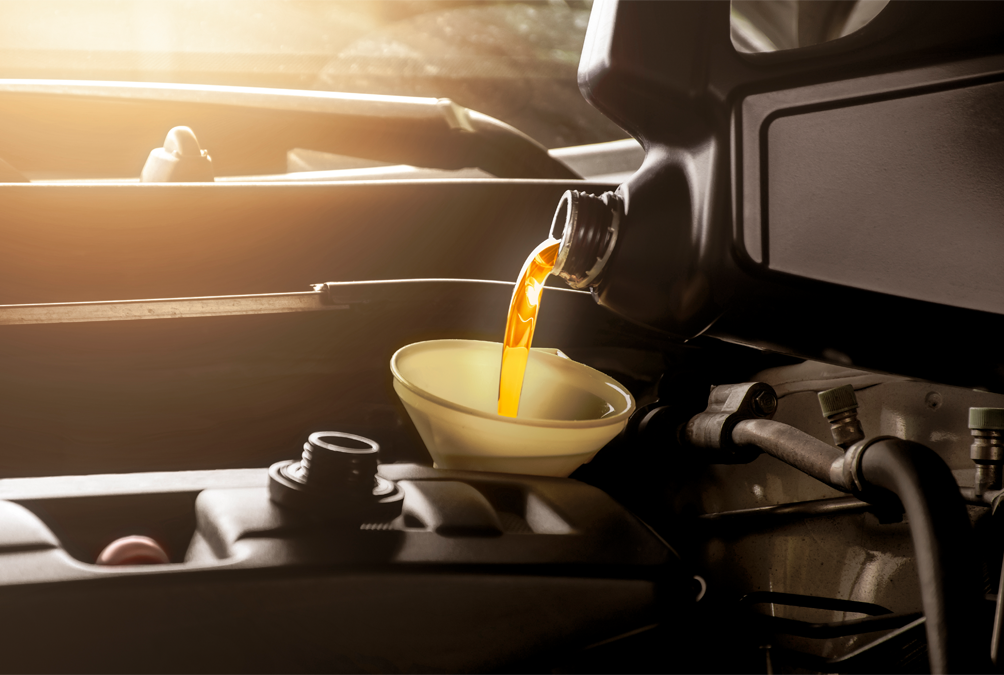
Which oil should I use in my car when it comes to refuelling?
Between oil changes, it is critical to keep your oil topped up. Once water is introduced into the mixture, oil can evaporate over time, and as the oil gradually loses its lubricating properties, your engine will require more of it to keep moving parts moving smoothly.
If you're topping up your own oil, make sure you get the right one for the job, or, more specifically, the right viscosity. Most engine oil bottles are labelled "multigrade," with a viscosity rating of two numbers, such as 10W-30. In layman's terms, the number represents the thickness of the oil at various temperatures.
The first number represents the viscosity of the oil at a low temperature (W stands for Winter), while the second represents the viscosity at 100oC. All of this means that the recommended oil thickness varies by vehicle, so be sure to use the correct one. As is customary, your vehicle's handbook should contain all of the information you need about the type of oil to use in your vehicle.
In the absence of this, the viscosity rating is frequently printed on the under-hood oil cap. Finally, if the owner's manual for your vehicle recommends synthetic oil, using a non-synthetic, conventional variety may void your warranty.
Why is it compulsory to change your car's oil on a regular basis?
One of those necessary car maintenance tasks that is all too easy to put off is an oil change. Out of sight, out of mind, as your car may appear to be in good working order despite the fact that it hasn't had an oil change in a long time.
If you put off your oil change or car service in Reading, you risk causing irreversible damage to your engine components, which could result in a large repair bill later on.
The most important function of motor oil is to lubricate your engine's moving parts and keep them from seizing up. Without proper lubrication, the engine's intricate components will rub together, potentially causing severe engine damage. Engine oil also has the job to cool the engine and draw heat away from the combustion chamber. This can become dangerously hot if the oil's liquid properties are not present to aid in cooling.
Why should you change your car's oil?
Why is it necessary to change your car's oil so frequently? Perhaps you recently checked the dipstick and discovered that the oil level is fine, implying that no action is required. Wrong. Of course, the oil level in your engine is critical, but it is only one factor to consider.
The lubricating properties of engine oil do not last indefinitely; over time, it accumulates dirt and foreign particles, and its chemical composition degrades. The difference is visible because the oil that goes into your car is a golden liquid that looks like maple syrup, and what comes out after 4,000-5,000 miles is a black tar-like substance that is much thicker and far less effective as a lubricant.
How often should I change the oil in my car?
Knowing when to change your oil is not an exact science, but most vehicle manufacturers recommend doing so every 3,000-5,000 miles. Your vehicle's annual service includes a full oil and filter change, but if you drive a lot of miles or spend a lot of time stuck in traffic, it's best to get your oil changed sooner rather than later.
The best advice is to consult the owner's manual for your specific vehicle to determine the recommended oil change interval.
Frequently Asked Questions (FAQ’S)
1. What is the purpose of changing the oil in a car?
Oil is used to lubricate, clean, and cool moving parts in engines, preventing metal-to-metal contact and the resulting friction and damage. We need to change the engine oil because it degrades as we drive.
2. What happens if you don't change the oil in your car?
You could lose your car if you go too long without changing your oil. When engine oil hardens, it loses its ability to draw heat from the engine. The engine could overheat, causing a gasket to blow or the engine to seize. In other words this means complete engine failure.
3. Is driving a car that hasn't had its oil changed dangerous?
Even if you do not change the oil frequently or if you exceed the set limit, your engine will run smoothly. If your engine can handle it, it will take your vehicle anywhere from 5,000 to 6,000 miles. Running the vehicle without changing the oil is not as dangerous as not changing the oil at all.
4. Is it necessary to change the oil in your car every three months?
Although many quick-lube establishments recommend doing it every three months or 3,000 miles, many mechanics believe that such frequent changes are excessive. In fact, most car owner's manuals recommend changing the oil less frequently, usually every 5,000 or 7,500 miles.